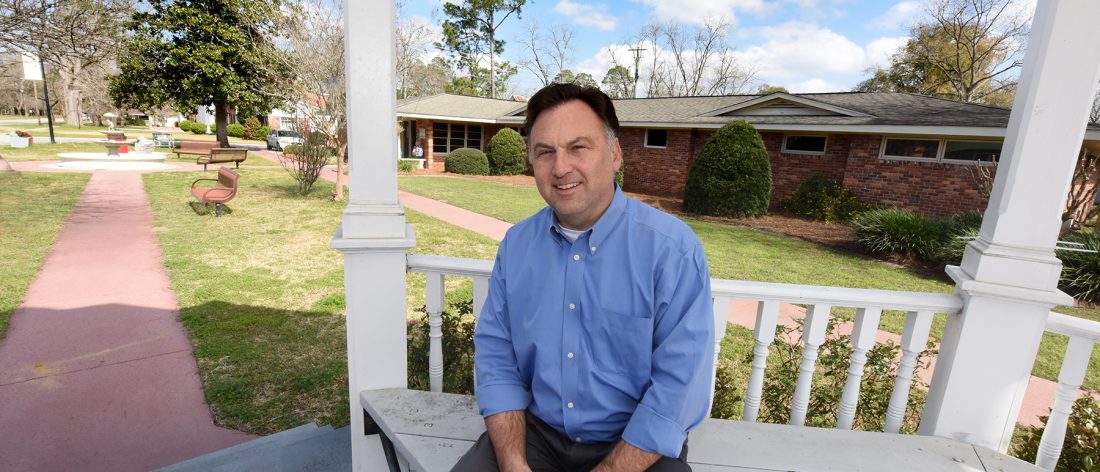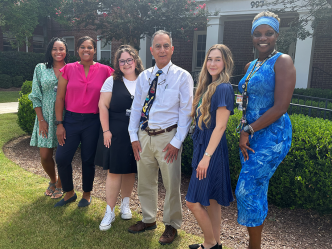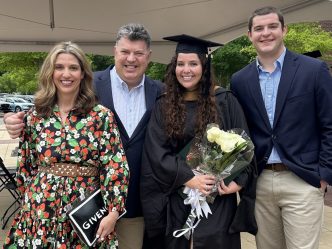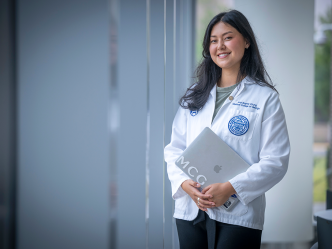The only physician serving Brooklet, Georgia, and the leaders of the medical school’s Vascular Biology Center, were honored Thursday by Dr. David C. Hess, dean of the Medical College of Georgia at Augusta University.
Dr. Scott Bohlke, a 1992 MCG graduate and family medicine physician, received the Community Advocate Award. The Vascular Biology Center’s Director, Dr. David Fulton, and Associate Director, Dr. Neal Weintraub, received Professionalism Awards.
“Drs. Bohlke, Fulton and Weintraub simply embody this medical school’s mission to improve the health of Georgians,” Hess says. “Dr. Bohlke tirelessly serves as the sole physician for a town of 1,700 people, who otherwise would have no access to health care. Likewise, Drs. Fulton and Weintraub are helping lead the state’s public medical school’s fight against cardiovascular disease, the top killer of people in this state and the country.”
Bohlke joined Brooklet’s Bohler Family Practice, started by Dr. Charles Emory Bohler, a 1954 MCG graduate, shortly after completing his family medicine residency in Columbus, Georgia. Now the practice owner, Bohlke has been the only physician in the three-and-a-half square mile, rural town outside of Statesboro since Bohler’s retirement more than 15 years ago.
He is a longtime member of MCG’s Advisory Board; of the MCG Alumni Association, serving as president from 2010-11; and of the Medical Association of Georgia, serving as president from 2012-13. He serves on the Georgia Board of Health Care Workforce, which works to identify the medical workforce needs of Georgia communities and to meet them through the support and development of medical education programs. He served as a major in the United States Air Force from 1995-99.
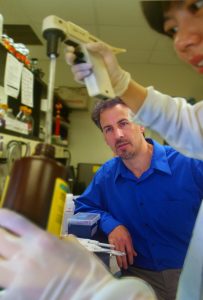
Fulton, a vascular biologist and Regents’ Professor in the MCG Department of Pharmacology and Toxicology, was named director of the Vascular Biology Center in 2013, after serving as interim since 2011.
He studies molecular mechanisms regulating the function of vascular endothelium, the lining of the blood vessels, in health and disease. He and Dr. David Stepp, vascular biologist in the VBC and Leon Henri Charbonnier Endowed Chair in Physiology, are principal investigators on a new $2.7 million grant from the National Institutes of Health that is helping figure out if the use of intermittent fasting combined with a developing category of drugs that repair the body’s circadian clock can help lower cardiovascular disease risk.
Fulton is associate editor of the journal Frontiers in Oxidant Biology and is an editorial board member of the journals Arteriosclerosis, Thrombosis and Vascular Biology and Cardiovascular Research.
Dr. Weintraub, Georgia Research Alliance Herbert S. Kupperman Eminent Scholar in Cardiovascular Medicine, is also chief of the Division of Cardiology in the MCG Department of Medicine.
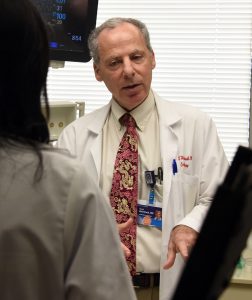
His current research includes clinical trials using matching donor mesenchymal precursor cells to attempt to improve heart function in patients with congestive heart failure. His NIH-funded basic science studies include improving fat cell function in obesity to reduce cardiovascular and diabetes risk, exploring how aging fat contributes to Alzheimer’s disease, developing medical therapies to treat abdominal aortic aneurysms, and advancing stem cell therapies for heart disease and to treat Duchenne muscular dystrophy.
Weintraub is associate editor of Translational Research and a longtime editorial board member of the journal Arteriosclerosis, Thrombosis and Vascular Biology.
Faculty in MCG’s Vascular Biology Center are investigators on 58 extramural research grants from organizations such as the National Institutes of Health, Department of Veterans Affairs and the American Heart Association.
 Augusta University
Augusta University
